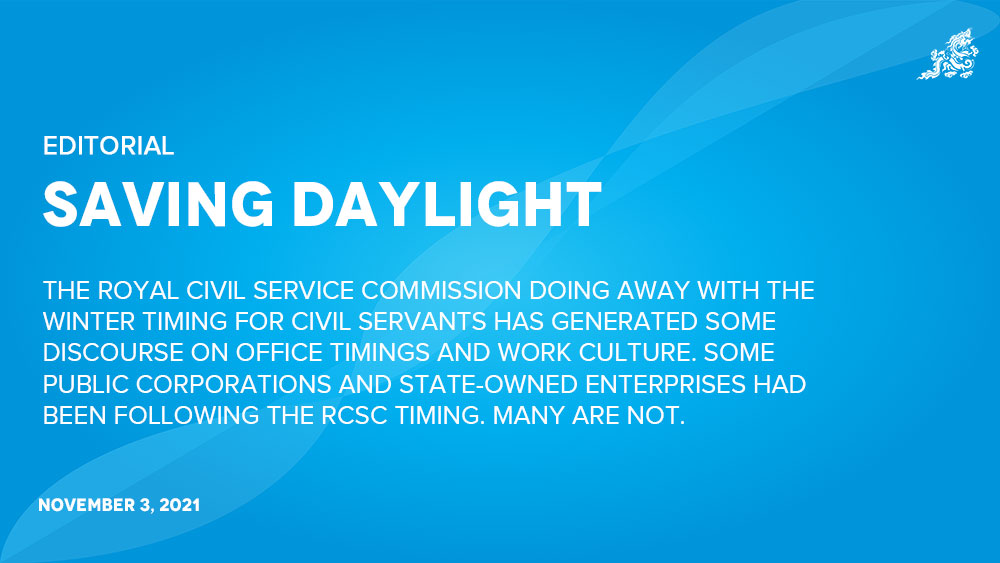The Royal Civil Service Commission doing away with the winter timing for civil servants has generated some discourse on office timings and work culture. Some public corporations and state-owned enterprises had been following the RCSC timing. Many are not.
The winter timing, which basically reduces office time by an hour during the cold and short winter months, was introduced to let public servants leave work an hour early. By peak winter, the sun sets around 5:00pm and by the time the office goers reach home, it would already be dark. Closing the office by 4pm gives them an extra hour.
Winter in Bhutan can be harsh, especially in northern Bhutan. Days become shorter, colder, and nights longer. When following a clock-based work schedule round the year, the short days in winter can be an inconvenience.
With the winter timing done away with, some are talking about what is called the Daylight Saving Time, a practice of moving the clock forward by an hour from the standard time during winter and changing them back again in summer. By doing that we save an hour of daylight time. This means we have to wake up an hour earlier ahead of the normal standard time, begin and complete work an hour earlier. This will make available an extra hour of daylight after work. For those who are into after work activities like jogging, walking or gardening activities, the extra daylight hour could help them
Another big advantage could be saving on energy. The first reaction among many civil servants on the changed working time was that an extra hour wouldn’t make any difference but only a waste of electricity and internet. While conserving energy is still argued in countries that have adopted daylight saving, it could prove right for the hundreds of offices whose energy bill is paid by the government.
Hefty energy bills add to recurrent costs. When the bill is borne by the government or companies, the pinch is not felt. It will take time for civil servants to get used to the change in office time or sink in that every unit of energy wasted is a cost to the government. In winter, it is more expensive as we import electricity to meet our shortages.
Our farmers already align to the length of day and night or seasons. Their works are governed by the length of daylight hours. They might wake up earlier to complete a day’s work keeping in mind the sun will set at 5pm and darkness sets in immediately after sunset.
Adjusting our clock by an hour, if we ever do, should not be only for civil servants, corporations or SOEs. It will disrupt normal routines. If, for instance, school starts at 8:30am and we start at 7:30am because of moving the clock ahead an hour, it will be chaotic. Therefore, it should be the standard time. As a small country, time zone is not an issue for us.
A 30 minute adjustment to our clocks could be more appropriate without having to change the working hours.


